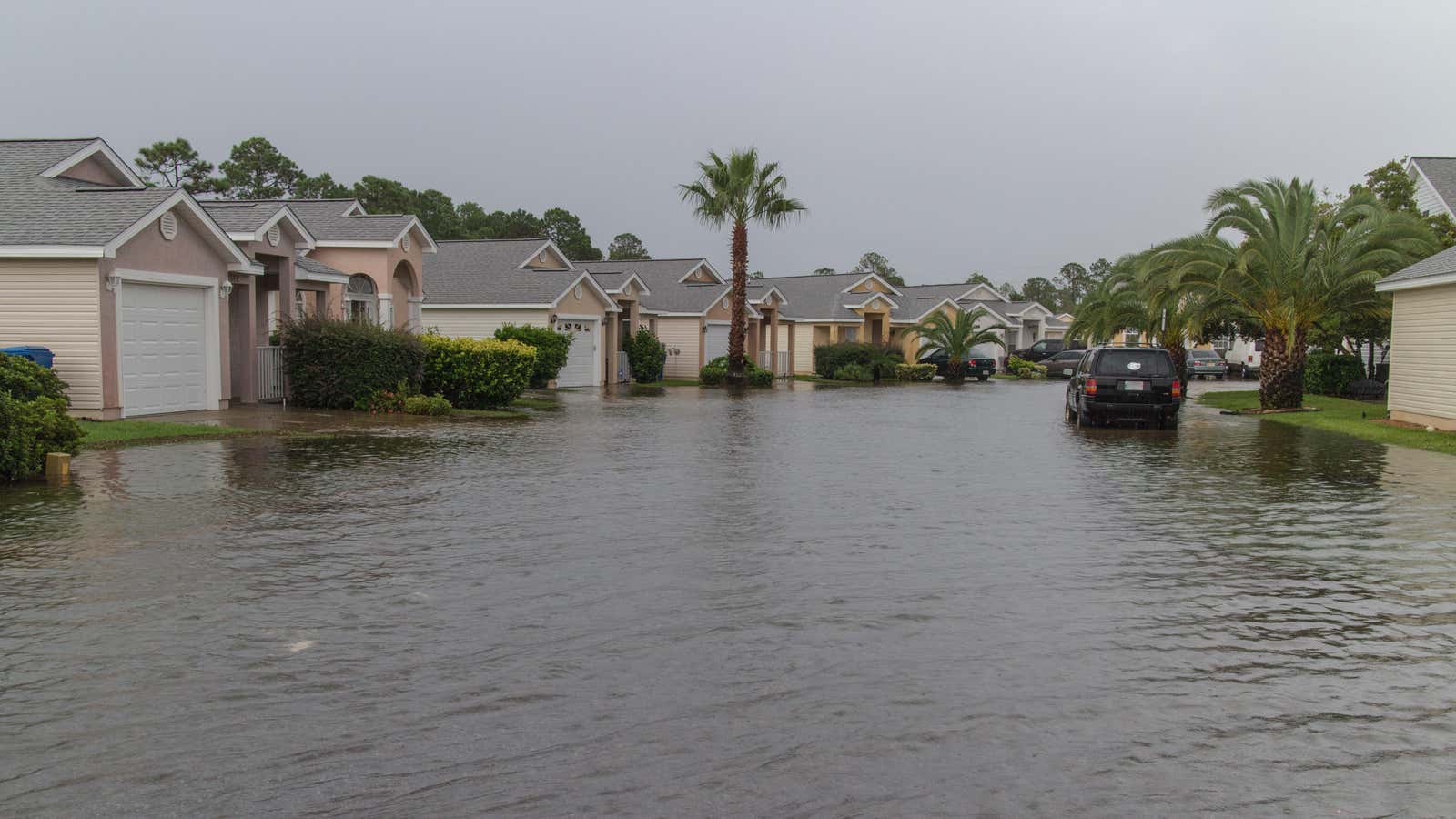How to Assess Your Home’s Risk From Climate Change

We can’t seem to go more than a few days without worrying headlines about the climate crisis – from a looming “megastorm” in California to an “environmental nuclear bomb” brewing in Utah , to data suggesting extreme temperatures (over 100 degrees Fahrenheit), are likely to occur more frequently and over longer periods of time in most of the country in the coming decades.
While these environmental issues affect everyone, they are expected to have a significant impact on areas that are also population growth hotspots. For example, dangerous heatwaves are expected to hit Arizona, Texas and Florida particularly hard. (Texas has added the most residents in the past decade .)
Ignorance can be a blessing, but it’s probably best to be aware of the risk of fires, floods, and other environmental disasters where you live, or especially before buying a home. If you are determined to live in a particular geographic location, you may have to take some risk that does not apply to your property. But if you’re only thinking about moving in the future, risk calculation can influence your decision about where and when. Environmental hazards can affect home prices, and also affect ongoing costs such as flood insurance.
How to assess the environmental risk of your home
Sure, you can look at fire and flood plane maps and try to interpret historical data and trend projections yourself, but the nonprofit First Street Foundation has created a tool called The Risk Factor that does it all for you. Simply enter the address of your home or potential purchase into the search bar to view fire, flood and heat risks. You can also search by zip code, city, or county.
The tool will rate each risk factor on a scale of 1 to 10 and further break down the risk using historical data as well as current and future projections. When searching for a specific address, the tool will include information such as distance to water, building materials used, and relative altitude.
Several real estate search platforms, including Realtor.com and Redfin, also include risk factor data directly in the listings. Of course, a reminder that this is just an approximate risk prediction tool and not a guarantee – it also doesn’t cover all environmental issues or natural disasters.
Why is it important to know your climate risk?
Again, if you are investing in a home, you need to be aware of whether there is a possibility or an almost inevitable environmental disaster in the future. Sellers may not be required to disclose details of risks or previous climate events affecting the property. You may need to purchase risk-related insurance, and even if this is not required, it may still be a good idea. Factors such as extreme heat can affect energy consumption over time, driving up costs, and major climate events can have a wider impact on society.
Bottom line: Be an informed buyer and homeowner. High risk doesn’t have to keep you from living where you want, but you can take it into account and mitigate the consequences if possible.